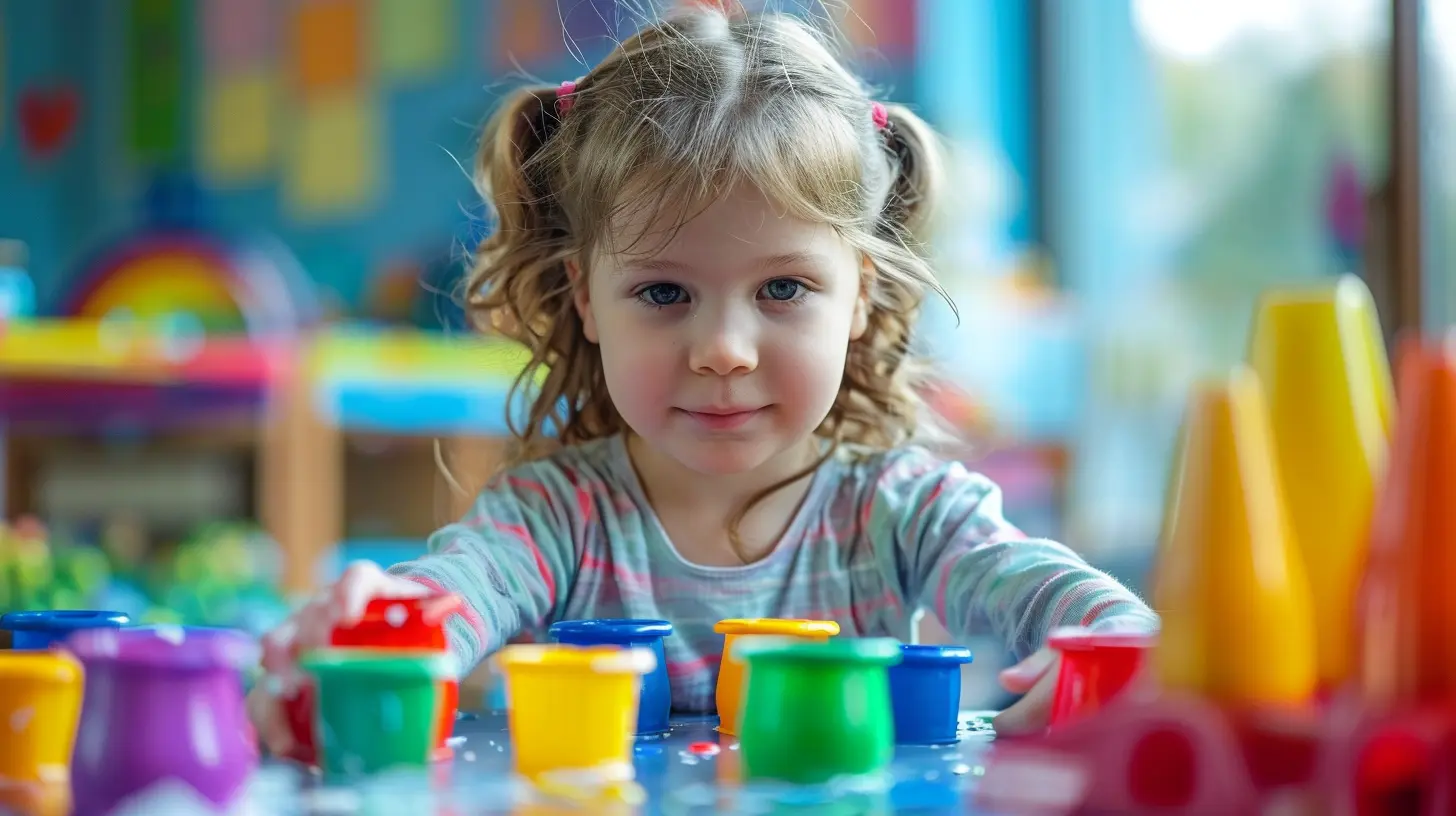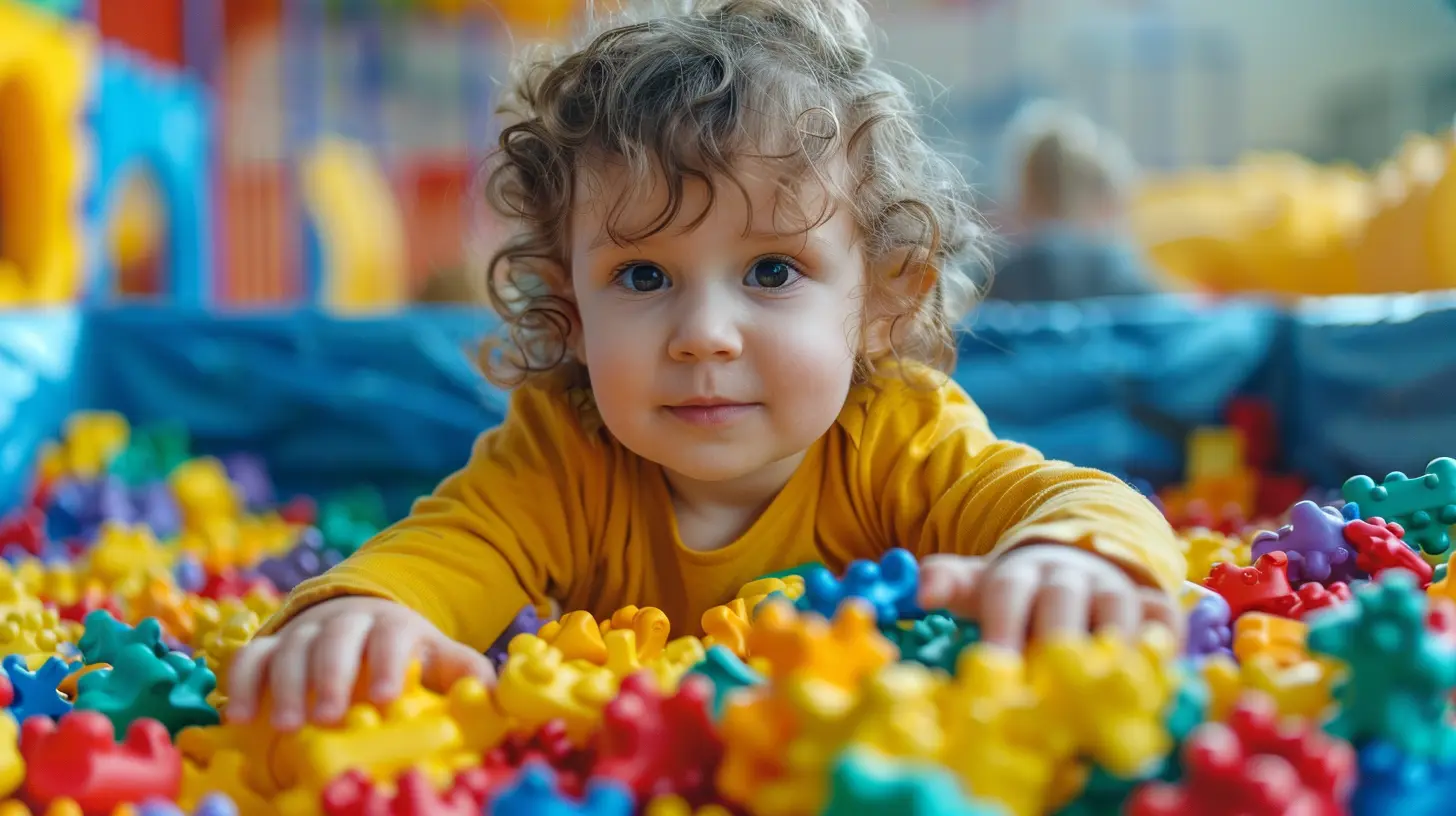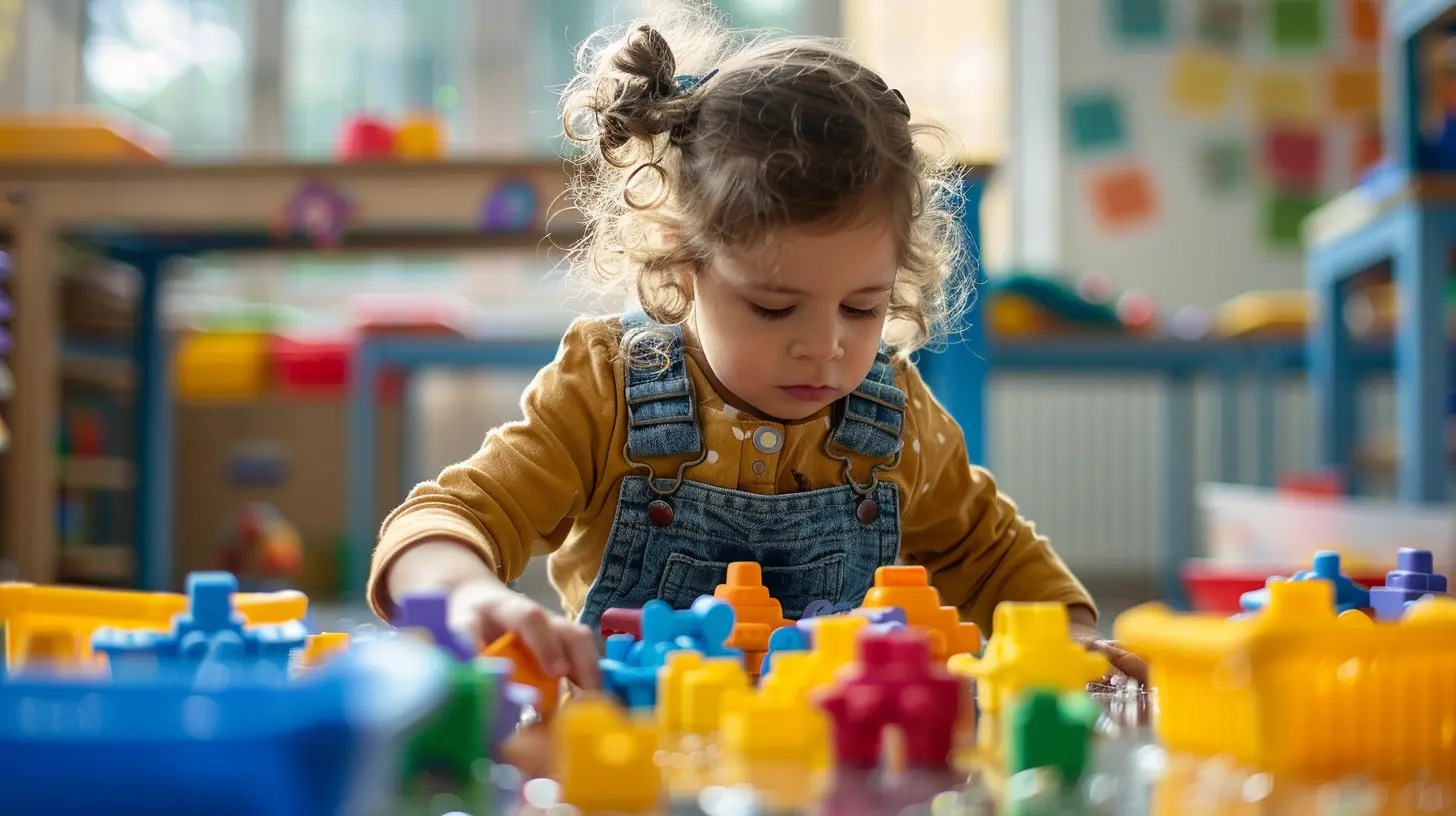The Benefits of Sensory Play for Early Development
12 September 2025
Children are naturally curious. They love to explore, touch, taste, smell, see, and hear everything around them. Have you ever noticed how a toddler instinctively reaches for sand, pokes at a squishy banana, or laughs at the sound of crunching leaves? That’s sensory play in action!
Sensory play isn’t just about fun—it plays a crucial role in early childhood development. From building motor skills to enhancing problem-solving abilities, sensory experiences shape a child’s brain in incredible ways. Let’s dive into the amazing benefits of sensory play and why it’s essential for little learners.

What Is Sensory Play?
Sensory play involves activities that stimulate a child’s senses—touch, smell, taste, sight, and hearing—as well as balance and movement. It can be as simple as playing with water or as creative as making homemade slime.The best part? Sensory play doesn’t require expensive toys or fancy equipment. Everyday objects like rice, sand, or even cooked spaghetti can provide endless opportunities for sensory exploration!

Why Is Sensory Play Important?
Sensory play is more than just messy fun—it helps develop essential skills that children will use throughout their lives. From strengthening cognitive functions to improving emotional well-being, the benefits of sensory play are vast. Let’s break it down:1. Boosts Brain Development
Did you know that sensory play helps build neural connections in the brain? Every time a child engages in sensory activities, they strengthen their cognitive abilities. When they squish, squeeze, pour, or mix, they’re making sense of the world around them.For example, when a toddler plays with playdough, they aren’t just molding shapes; they’re refining their spatial awareness, creativity, and problem-solving skills. These small but significant experiences lay the foundation for learning and critical thinking.
2. Improves Fine and Gross Motor Skills
Sensory play is a natural way for kids to develop both fine and gross motor skills. Fine motor skills involve small movements like pinching, grasping, and manipulating objects, while gross motor skills focus on larger movements like jumping, running, and balancing.- Fine Motor Skills: Activities like threading beads, playing with clay, or picking up small objects train the tiny muscles in a child's hands and fingers. These skills are crucial for tasks like writing, buttoning clothes, and using utensils.
- Gross Motor Skills: Actions like jumping in puddles, walking on a sensory path, or playing with a ball improve strength, coordination, and balance.
3. Encourages Language Development
Ever noticed how kids love to describe what they’re doing during play? Sensory play encourages communication—whether they’re explaining the texture of slime or talking about the sounds they hear in a sensory bin.Engaging in sensory experiences introduces children to new words and concepts, helping them expand their vocabulary. Plus, when caregivers interact and ask questions during play, it promotes conversation and language skills.
4. Supports Emotional Regulation
Life can be overwhelming for little ones. Sensory play acts as a form of self-regulation, helping children process emotions and calm down when feeling overstimulated.For instance, playing with kinetic sand or water beads can be soothing and therapeutic. The repetitive motion of pouring or squeezing provides a sense of relaxation, especially for children who struggle with anxiety or sensory sensitivities.
5. Promotes Social Interaction
Sensory play isn’t just a solo activity—it’s a great way for kids to bond with siblings, friends, and caregivers. When children engage in group sensory activities, they learn important social skills like sharing, taking turns, and problem-solving together.Imagine a group of kids working on a sensory art project. They communicate, collaborate, and develop teamwork skills—all while having fun!
6. Enhances Creativity and Imagination
Sensory play allows children to think outside the box. Whether they’re mixing mud pies, creating a rainbow rice bin, or using shaving cream as "snow," sensory activities encourage creativity and imaginative thinking.By experimenting with different textures, smells, and sights, children develop a natural curiosity that fuels their creativity. This ability to think imaginatively will benefit them in academics, problem-solving, and everyday life.
7. Strengthens Sensory Processing Skills
Some children, especially those with sensory processing challenges, may find certain textures, sounds, or sensations overwhelming. Engaging in sensory play helps them gradually become more comfortable with different sensory experiences.For instance, a child who avoids sticky textures may slowly adjust by engaging in controlled sensory activities like playing with finger paint or pudding. Over time, sensory play helps them build tolerance and adaptability.

Easy Sensory Play Ideas to Try at Home
You don’t need an elaborate setup to introduce sensory play. Simple, everyday activities can provide meaningful sensory experiences. Here are a few easy ideas:1. Sensory Bins
Fill a large bin with materials like rice, pasta, beans, or sand. Add scoops, cups, and small toys to encourage hands-on exploration.2. Water Play
Give children a tub of water along with cups, sponges, or droppers. Let them pour, squeeze, and experiment with temperature differences.3. Playdough Fun
Homemade or store-bought playdough is great for developing fine motor skills. Add essential oils for an extra sensory experience.4. Nature Exploration
Take a walk outside and collect leaves, rocks, and flowers. Let kids explore different textures and smells.5. Finger Painting
Allow children to create art using their hands. It’s messy but provides excellent sensory feedback!6. Sensory Bottles
Fill clear bottles with water, glitter, beads, or oil to create calm-down jars. These are great for relaxation and emotional regulation.
Final Thoughts
Sensory play isn’t just an activity—it’s a valuable learning experience that supports a child’s overall development. From boosting brain function to improving social skills, sensory play provides countless benefits.The best part? It doesn’t have to be complicated. A simple bin of rice, a splash of water, or a pile of leaves can spark endless learning opportunities. So, don’t be afraid to embrace the mess and let your little one explore—because every squish, splash, and crunch is shaping their world in the most beautiful way!
all images in this post were generated using AI tools
Category:
Child DevelopmentAuthor:

Olivia Lewis
Discussion
rate this article
1 comments
Azura McIlwain
“Messy hands, happy brains—let’s play!”
September 23, 2025 at 6:57 PM

Olivia Lewis
Absolutely! Sensory play fosters creativity and cognitive development, making messy fun a vital part of early learning.


